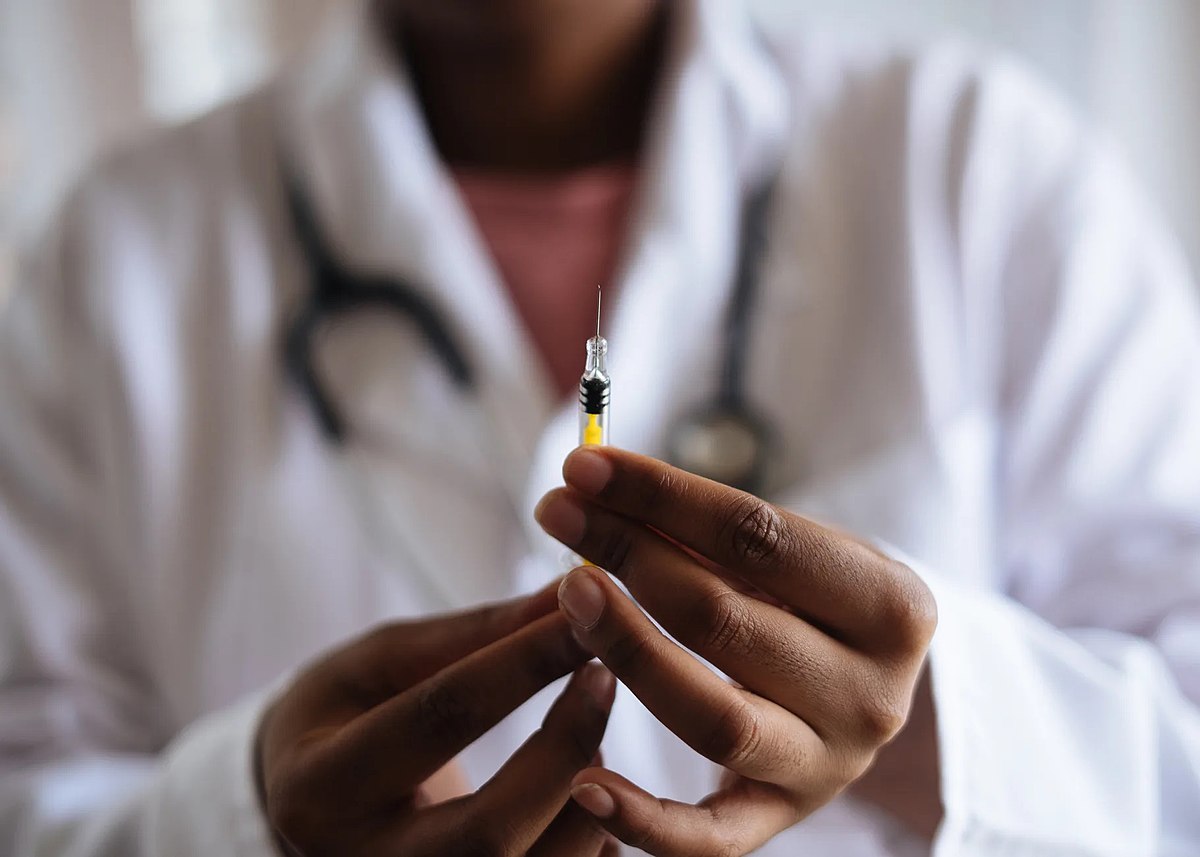
Under Operation Warp Speed, President Donald Trump’s administration is racing to develop a vaccine that will end the COVID-19 pandemic. But despite the promises of a silver bullet to end the pandemic, the COVID-19 vaccine poses a potential danger to liberty, and our health.
According to Politico magazine, the president believes that a vaccine is only weeks away. With the possibility of states eventually requiring the new vaccines, the nation could be heading to a crossroads between liberty and state compulsion. Being forced to take any vaccine — no matter how effective it is — violates bodily autonomy. In his landmark book “Constitution of Liberty,” F.A. Hayek wrote that property rights are defined as having a “sphere of free action.” If that sphere does not include your own person, then what liberty truly exists?
The state has no right to violate any citizen’s bodily autonomy. Statists who demand that an experimental vaccine be injected into every American will point to Jacobson v. Massachusetts (1905), which upheld a Cambridge, Massachusetts vaccination order to curb a smallpox outbreak — a disease with a 30% fatality rate — as grounds for mandatory vaccination campaigns. Applying this ruling to a potential COVID-19 vaccine a century later, however, is not as simple as it may seem.
The smallpox vaccine was introduced in 1796, 109 years before the case was resolved. According to Justice Harlan’s majority opinion, vaccine mandates are not oppressive so long as they do not “go so far beyond what was reasonably required for the safety of the public.” It is entirely unreasonable to argue that the COVID-19 vaccine will have the same level of efficiency and safety that the battle-tested smallpox vaccine did, given that most vaccines take many years and multiple iterations to become effective.
Another concern, which is perhaps a greater threat in the short term, is the adverse health effects of experimental vaccines. In a May 2020 article, Today.com reported that a 29-year-old Seattle man lost consciousness and was briefly hospitalized with a 103-degree fever after an adverse reaction to a Moderna Inc. vaccine candidate. Pfizer, a COVID-19 vaccine producer, announced this month that it would temporarily pause Phase III clinical trials due to moderate side effects in volunteers. While the vaccine candidates can certainly improve over time — each of which could take months to years — it is frightening to see these side effects, even if they are temporary. If the shortest vaccination campaign in American history took four years, shouldn’t we be hesitant to take a vaccine for a virus that has only circulated for six months?
Some have warned that rushing the COVID-19 vaccine could fuel the fire of anti-vaccination sentiment. According to an article by Vox magazine, “there are signs that this rushed pace and inconsistent messaging from the White House about the severity of the outbreak is harming trust in the potential vaccine.”
We must also question the necessity of rushing the vaccine. The data itself suggests that COVID-19 is not a serious disease for young Americans. According to the most recent data from the Centers for Disease Control and Prevention, Americans aged 0-17 contracted 438,702 COVID-19 cases, and 93 died, a fatality rate of 0.02%. In comparison, CDC data from the 2018-2019 flu season states there were 11,296,414 influenza cases in Americans aged 0-17, and 477 died.
Additional evidence from the CDC states, “for 6% of the deaths, COVID-19 was the only cause mentioned. For deaths with conditions or causes in addition to COVID-19, on average, there were 2.6 additional conditions or causes per death.” While this does not mean that only 6% of reported COVID-19 deaths are “actually” COVID-19 deaths, we ought to consider that these comorbidities clearly weakened already embattled immune systems, and there are an infinite number of other causes that could have been the final straw in a coronavirus-free world.
We should take the necessary precautions of wearing masks and social distancing to protect the elderly and those with underlying conditions from the virus, as well as getting tested and isolating when symptoms arise. But there is a line between prudent precaution and panic. Prudence consists of the aforementioned strategies to curb the virus. Panic consists of shutting down the entire economy, fining people for interstate travel, tazing someone for not wearing a mask, and rushing to inject 330 million people with an experimental vaccine against a virus that only poses substantial danger to certain demographics of the population.
Government mandates have failed the American people during this pandemic. How can we trust our leaders with our lives when they have failed so miserably?
As the virus ravaged China and Europe in the early spring, Director of the National Institute of Allergy and Infectious Diseases Anthony Fauci made one of the most infamous statements in American history in a 60 Minutes interview, telling Americans that “there’s no reason to be walking around with a mask.” New York governor Andrew Cuomo infamously limited churches to 25% capacity in the spring, yet openly praised massive Black Lives Matter protests, which according to The New York Times included an unfathomable 15 to 26 million Americans and participants clearly violated social distancing protocols. Speaker of the House Nancy Pelosi went to a hair salon without a mask. When a video of her recklessness went viral, Pelosi claimed she was set up.
History will mock the hypocrisy of our leaders’ COVID-19 response. There was no rhyme or reason to the shutdowns, and the rush for a vaccine is also baffling. As former president Ronald Reagan said, “the nine most terrifying words in the English language are: I’m from the government, and I’m here to help.” The government has already failed to contain COVID-19, and there is no reason to assume whatever experimental vaccine it approves will do any better.
Thomas Curro is a sophomore studying politics.

